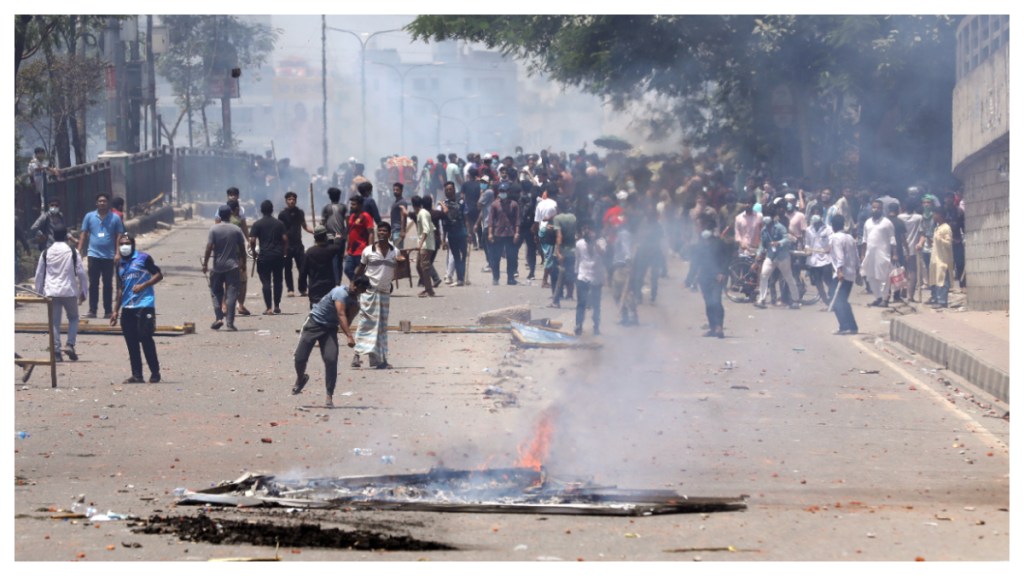Bangladesh Prime Minister Sheikh Hasina’s office declared countrywide curfew on Friday. The military forces have also been deployed to restore calm after violent clashes erupted over government job allocations. The announcement was made by Press Secretary Naeemul Islam Khan, reportedly following a prison attack in Narsingdi on Friday. The attack led to the release of numerous inmates.
The police had banned all public gatherings for the day, a first since the start of protests. Despite an internet shutdown aimed at disrupting rally organization, clashes between police and protesters continued throughout the sprawling city of 20 million people.
While some media reports are claiming that around 39 individuals have been killed, others are reporting the current death toll stands at 67. AFP on Friday reported that hospital count says 105 people are dead from the protests, but Reuters on the other hand, hasn’t been able to verify this as the police haven’t released the official number of casualties yet.
The U.S. Embassy in Dhaka reported over 40 deaths and said that “hundreds to possibly thousands” were injured across Bangladesh. It warned of spreading protests with violent clashes throughout Dhaka, describing the situation as “extremely volatile.”
Initially sparked by student discontent over quotas for government jobs, the nationwide unrest has grown, exacerbated by high youth unemployment in Bangladesh. Economic issues like inflation and dwindling foreign reserves have further fueled the unrest.
The protests have revived historical divisions between supporters of Bangladesh’s independence and those accused of collaborating with Pakistan. Prime Minister Hasina’s Awami League has labeled the protesters “razakar,” a term for wartime collaborators. The European Union expressed deep concern over the violence and urged a peaceful resolution respecting rule of law and democratic freedoms.
India had said that the unrest in Bangladesh was an internal matter of the country and assured the safety of its citizens there. The protests also led to violence in London, which has a significant Bangladeshi community.
Widespread Disruptions in internet and international calls
Internet and international calls were severely limited across Bangaldesh on Friday, and several Bangladeshi news websites and TV channels experienced outages or failed updates. The websites of key institutions like the central bank and prime minister’s office were reportedly hacked, with messages denouncing government actions.
Opposition figures, activists, and student leaders were reportedly detained, according to Tarique Rahman of the Bangladesh Nationalist Party, although Reuters couldn’t verify these claims.

